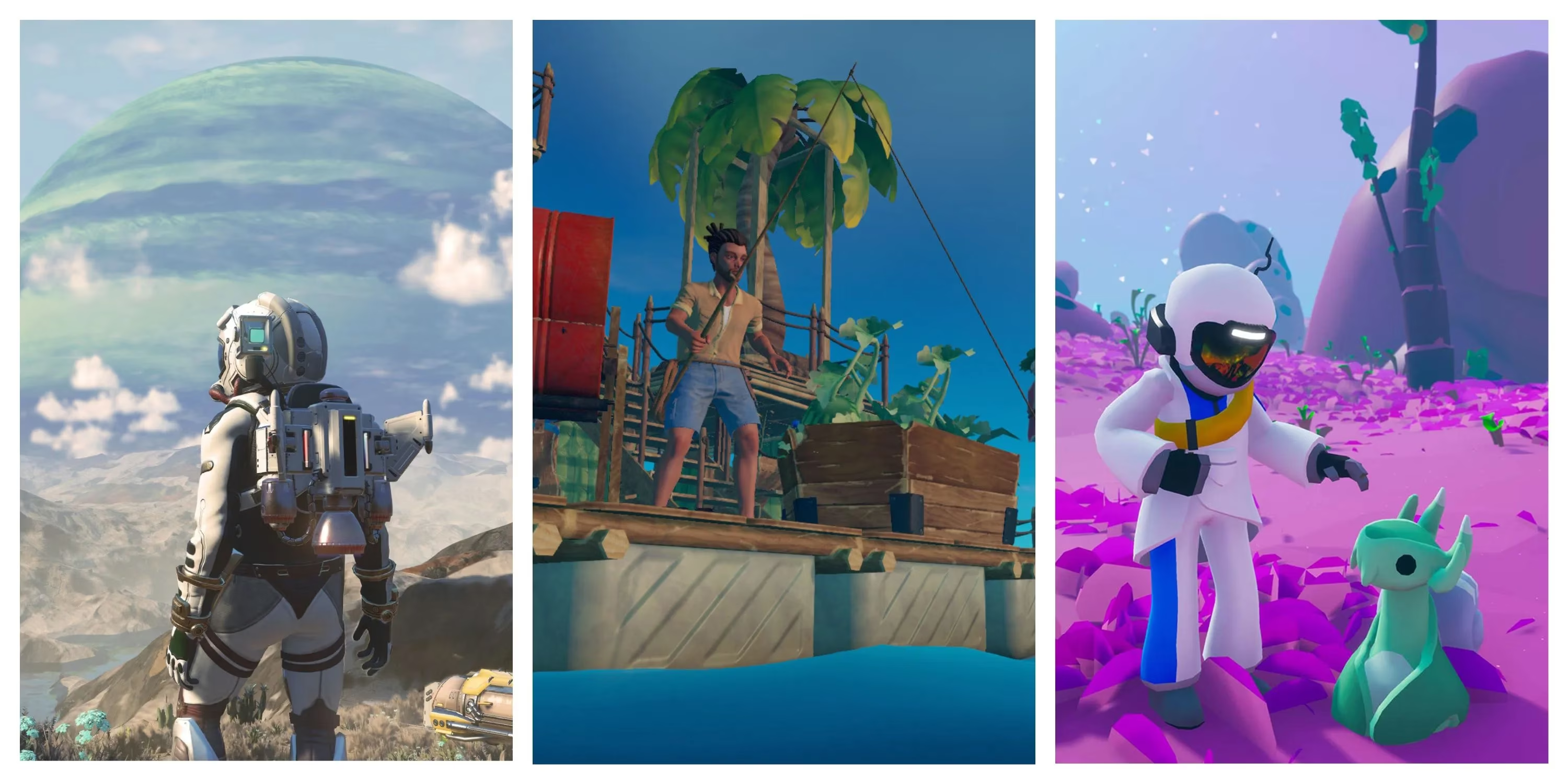My Survival Gaming Journey: Simple and Fun Adventures for Beginners
Discover accessible and thrilling survival games like Subnautica, Starbound, and The Flame In The Flood, perfect for beginners seeking adventure and excitement.
As a dedicated gamer who started exploring survival games back in 2024, I was initially intimidated by their reputation for complexity—who hasn't heard horror stories about managing endless resources and avoiding permadeath? But in 2025, I've discovered that not all survival games are a steep climb; some are welcoming gateways that let me escape reality without the stress. There's something cathartic about abandoning societal norms and carving out a life in hostile, exotic worlds, like diving into alien oceans or drifting through space. I remember my first foray into survival gaming: I was hesitant, fearing I'd get lost in intricate mechanics, but these accessible gems proved me wrong. They eased me in with intuitive tutorials and manageable challenges, making every adventure feel personal and rewarding. Now, I can't get enough of them—they're my go-to for unwinding after a long day. 😊
Subnautica: Facing Fears in the Deep Blue
Subnautica hooked me right from the start with its alien underwater setting. Picture this: you crash-land on a planet covered in endless oceans, with no tools or dry land—just you and the vast unknown. When I played it, the tutorials were a lifesaver, guiding me through crafting and resource gathering without overwhelming me. But let's not kid ourselves; the deep sea is terrifying! Swimming through those dark waters, I encountered massive creatures that had me jumping out of my seat. 😱 Can you imagine the adrenaline rush when a leviathan loomed out of nowhere? Personally, I loved how I could gradually build gear to make the ocean less intimidating, like upgrading my submersible. It felt empowering to turn fear into fun. 
Starbound: Charming Exploration Across the Stars
Next, I dove into Starbound, a 2D gem that feels like a cozy cousin to Terraria. As a member of an intergalactic peacekeeping force fleeing a destroyed Earth, I explored procedurally generated planets filled with endless possibilities—battling foes, building bases, and crafting tools. What struck me was its simplicity; the mechanics are stripped-down compared to others, and my spaceship became my reliable home base. I adored the freedom: one moment I was farming resources on a lush planet, the next I was battling aliens in a desert. 🌌 Why settle for one world when you can hop between them? For newcomers, it's perfect—less complex, more whimsical.
The Flame In The Flood: Roguelike River Rides
This game introduced me to survival with a roguelike twist, and it was a revelation. Navigating a procedurally generated river on a raft, I had to scavenge for food and water while managing hunger, thirst, and fatigue—all while Scout's loyal dog helped sniff out essentials. My personal highlight? The thrill of each new run; if I messed up (which happened often!), I could restart fresh without frustration. The simplicity lies in its focus: just stay alive on the river. I found it oddly meditative, with moments of panic when supplies ran low. 🛶 Ever wonder how you'd fare in a flooded world?
Raft: Life on the Open Water
Raft takes survival to the seas, and it's as straightforward as it gets. Stuck on a floating raft with sharks circling, I fished up debris to upgrade my tiny home. The mechanics are refreshingly minimal—no complex crafting trees, just essential upgrades to stay afloat. I recall nights spent watching the sunset over the ocean, feeling both isolated and peaceful. But beware: swimming off the raft risks shark attacks, so I learned to stay put! 🦈 Why complicate things when the ocean decides your fate?
Grounded: Backyard Adventures Shrunk Down
In Grounded, I played as a teen shrunk to ant size in a backyard, and wow, was it accessible! The tutorials walked me through crafting and building step-by-step, making it ideal for survival newbies. I loved exploring this tiny world—giant spiders became epic bosses, and dewdrops were life-savers. The simplicity shines in resource gathering; I didn't need to hunt for rare items to get started. Building a base under a leaf felt like a personal triumph. 🐜 Could you survive in your own garden?
Astroneer: Casual Space Terraforming
Astroneer offered a chill take on survival, focusing on terraforming alien planets. With modular structures and easy crafting, I molded landscapes to my will without urgent threats. Oxygen management was key, but overall, it was a relaxed experience. Floating in space, I felt a sense of calm—rare for a survival game. Why stress when you can sculpt the cosmos? 🚀
No Man's Sky: Infinite Simplicity
Despite its vast galaxy, No Man's Sky surprised me with its approachable mechanics. Early tutorials taught me basics like harvesting copper and carbon, and the snapping system for building bases made it intuitive. I spent hours exploring planets, marveling at the universe's beauty without feeling overwhelmed. For a game of infinite scope, it's remarkably simple at its core. ✨ What wonders would you discover out there?
Minecraft: The Timeless Classic
No list is complete without Minecraft, the game that popularized survival for me. Its cube-based world simplifies building—anyone can create a base—and crafting basics are easy to grasp. I started with simple mining and grew to complex Redstone contraptions, but at heart, it remains accessible. Digging my first diamond ore felt like pure joy. Why has it endured for so long? Because it proves survival can be fun and simple. ⛏️
To wrap up my journey, I've realized that survival games don't need complexity to be immersive. Each of these titles offered me a personal escape, blending challenge with approachability. They've become my favorites for quick play sessions in 2025. Now, I'm curious—what survival game would you recommend for someone starting out? Or which one made you fall in love with the genre? Let's chat in the comments! 👇